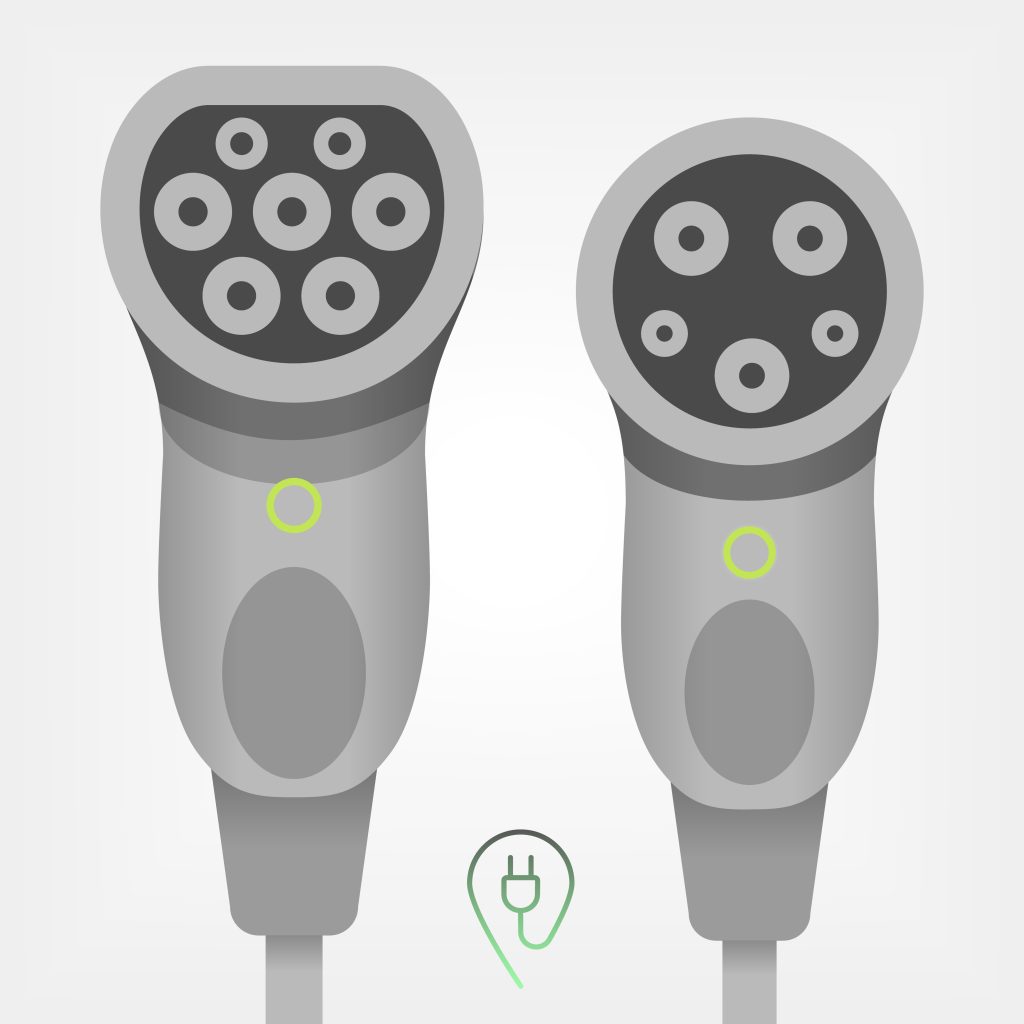
Understanding the CCS vs. NACS Plug Type Debate
Much like it does in sports, education, and entertainment, competition breeds excellence in the world of business. Think of the vast number of business empires that have thrived and soared to new heights when faced with competition, such as McDonald’s and Burger King, Apple and Samsung, or Home Depot and Lowe’s. This level of competition is also evident in the space of electric vehicle (EV) charging stations, where an ongoing debate exists between the Combined Charging System (CCS) and North American Charging Standard (NACS) plug types and which is the best choice as the world continues to move toward clean energy, sustainability, and a future filled with electric vehicles.
CCS and NACS Comparison
As the most common plug types for EVs in North America, CCS and NACS can both be used for charging a variety of electric vehicle makes and models but they each have their own unique differences. The CCS plug type was developed by the European Automobile Manufacturers Association and is most commonly used in public charging stations. While it is larger and heavier than its NACS counterpart, the CCS plug type features seven pins and can deliver up to 350 kW of DC charging power. It is utilized with Level 2 EV chargers rather than DC fast chargers, making it an ideal option for charging stations and locations with a longer dwell time.
Also known as the Tesla charging standard, the NACS plug type was developed by Tesla and until recently, was only available for use in Tesla electric vehicles. With only five pins, it is smaller and lighter than the CCS plug type, often making it easier to install. The NACS plug type is used with DC fast chargers rather than Level 2 EV chargers, making it a quicker charging option for longer trips. As one might expect given the manufacturer, it is most commonly used in the Tesla Supercharger network, but it was opened for use to other manufacturers in 2022.
The Future of CCS and NACS Plug Types
While the CCS is more widely adopted in Europe, the debate rages on to determine which plug type will become the standard in North America. Earlier this year, Ford and General Motors each announced that they would switch from CCS to NACS on all future EV models in North America. Those vehicles will initially include an adapter in 2024, but new models starting from 2025 will be built with native NACS ports. In turn, several other EV manufacturers followed suit and reached agreements for native NACS adoption, including Honda, Mercedes-Benz, Nissan, Rivian, and Volvo, among others.
On the other hand, the United States government has committed more than $7 billion in funding for electric vehicle charging infrastructure, and prefers the CCS plug type because it is more commonly utilized by EV manufacturers outside of Tesla. EV charging stations that use NACS plug types are eligible for rebates and incentives as long as they also include CCS charging capabilities. With an ultimate goal to provide accessible, reliable, and affordable EV charging for all drivers, the U.S. government allows flexibility for both NACS and CCS plug types with a stipulation that drivers must be able to count on a minimum of CCS.
The ACDI Energy Services Approach
Only time will tell whether NACS and CCS continue to coexist in North America or if one eventually becomes the dominant plug type. Regardless of what the future holds in the ongoing plug type debate, ACDI Energy Services will continue to focus on bringing clean and sustainable energy options to our partners that want to be involved in the EV revolution. Fueled by a network of authorized resellers, we believe the charging station infrastructure in North America is ready to be built, implemented, and maintained by our partners. Backed by our partnerships with leading EV charger manufacturers that keep a finger on the pulse of the ins and outs of the industry, our commitment is to supply charging stations, professional services, and software support to our partners throughout this endeavor.
